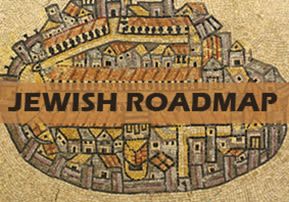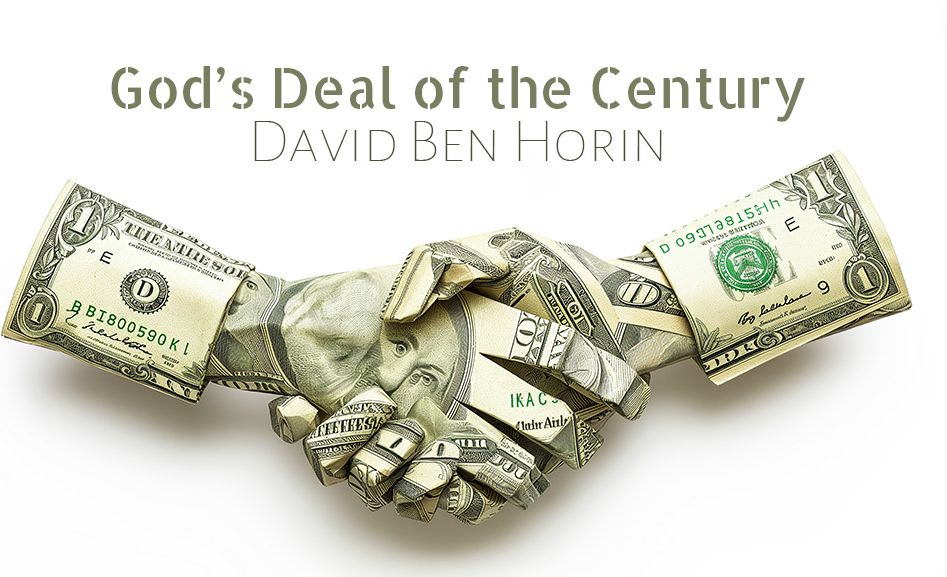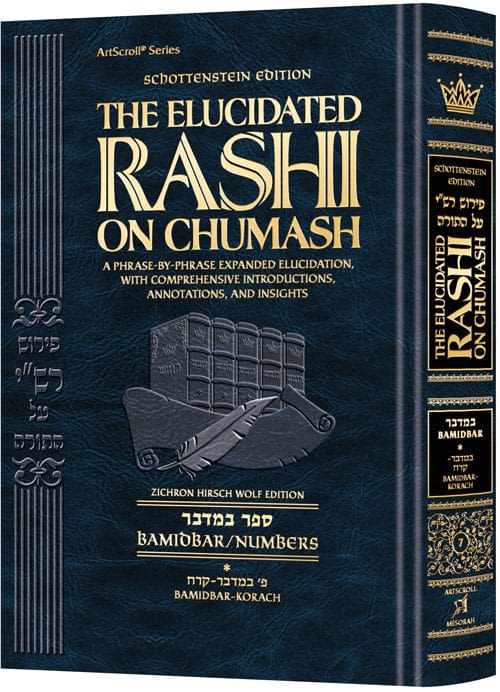
Jewish Roadmap
Why are so many Jews involved in every new "ism" there is, always looking for some new fad religion or ideology? Why don't they try this "ism" - Judaism...

Jews have been involved in founding feminism, communism, socialism, and modern environmentalism. They make up twenty percent of North American Buddhists, and a sizable percentage of American Hindus and Scientologists. Some Jews are even turning to a form of Christianity called messianic Judaism. It seems that many Jews love to be involved in just about every new “ism”, or religion there is, except for one, Judaism.
Rabbi Michael Skobac, education director for Jews for Judaism, Toronto, an anti-missionary organization, has found that there are two primary reasons that Jews do not find Judaism meaningful, 1) the belief that Judaism does not teach how to have a relationship with G-d, and 2) a perception that Judaism does not supply an avenue for personal and spiritual growth or provide the mission and meaning that is inherent in other religions or secular “isms”. Why do many Jews feel that their own religion is lacking in these spiritually compelling components of life? For me, my real Jewish education about these issues began a few years ago  after a chance invitation to attend my first Shabbat meal.
after a chance invitation to attend my first Shabbat meal.
After experiencing Shabbat, feeling the warmth of this amazing “island in time” as Shabbat has been described, I decided that I had to learn more about my religion. I had the same questions as many of those who have left Judaism for other “isms”, and religions. Is there a G-d, and if so how do we communicate with Him? Do we have a soul? Why can good people suffer and bad people prosper? Does Judaism believe in an afterlife? As I began to study and experience more, I discovered that not only does Judaism contain answers to life’s most important questions, but the answers can have life changing consequences. Let’s briefly take a look at a few of these ultimate issues. To fully receive Judaism’s wisdom, one must begin the process of learning. Here is one possible “Roadmap” to discover Judaism’s answers to some of life’s most important questions.
1) Is there a G-d?
This is the ultimate question of life, for if there is no G-d, then “all behavior is permitted” as Dostoyevsky has written. As noted atheist author, Sam Harris has even admitted, if there is no G-d, then there is no ultimate right and wrong, and morality is just a matter of person opinion. For some, murder is bad, but for the Nazis, murder was good.
Ultimately, G-d’s existence is a matter of faith, but for me it comes down to logic. A creation requires a Creator. If one was walking in a desert and ran across a computer, one could say, wow, the winds blew in such a way that that sand formed into silica and circuits, and the sun provided the energy over time to meld them together to form this amazing piece of equipment. Logic of course would cause one to question this scenario, but others would say this example is a straw man, and in no way relates to how science has answered the question of the origin of matter and life. But ask any scientist if we definitely know how life came about from non life, and if he is intellectually honest, he would have to answer, no, or at least, not yet. Rabbi Lawrence Keleman’s book, “Permission to Believe” can be a starting point along the Roadmap.
2) If there is a G-d, how do we “connect” or communicate with Him?
Within Judaism there are several ways to do this. One of the most powerful methods that I have found is participating in something called Hitbodedut, which is a daily discussion with G-d in our own language. This can be done anywhere, in our bed, in the car, or in the fields, or included at the end of our traditional standing meditation, the Amidah. By pouring our souls out to G-d as if we are speaking to a beloved parent or friend we begin to feel His presence and see His influence in our life. One may feel self conscious at first, but the more one participates in this exercise, the more one feels an actual connection with G-d.
Another way of connecting with G-d is based on one of the root meanings of the word mitzvot. Mitzvah, which really means commandment is frequently translated as “good deed”, so as not to scare away the average independent minded Jew. Those of us who have been brought up to believe that “if it feels good, do it,” and that “there are no shoulds in life” have no interest in believing that there is a Commander in our life, and that we may have inconvenient obligations to other people or G-d. One of the root words for mitzvah means to connect or link, therefore doing mitzvot or commandments from the Torah is another way of connecting with G-d. To continue along the journey, one can read The Garden of Emuna series by Rabbi Shalom Arush, with an excellent translation by Rabbi Lazer Brody.
3) Do we have an eternal soul, is there an Afterlife, and why can good people suffer and bad people prosper?
These questions are some of the most difficult to answer, and just the questions themselves have led many people to abandon their previously held faith, and have prevented others from developing it, for if there is a good G-d, then how could an innocent child fall seriously ill, or a bad person prosper. The sages teach that this is the question that Moses was asking G-d in the Bible when he asked to see “His Glory.” There are many texts in Judaism that discuss these issues, but in pure logical terms, if there is a good G-d, and we know that in this life sometimes good people suffer, and bad people prosper, then we know that there must be an afterlife, where ultimate justice takes place, the good are rewarded, and the bad are punished. Although it is much more complicated than this, and includes many ideas that many Jews don’t realize are contained within the mystical aspects of Judaism, such as reincarnation, this logical assumption should spur those interested in this subject to learn. For the beginner, Rabbi Benjamin Blech’s book, “If G-d is Good, Why is the World so Bad” can move one further along the path, and for the more advanced student, the book, “Derech Hashem” (The Way of G-d in English) by Rabbi Moshe Chaim Luzatto, with a very readable translation by Rabbi Aryeh Kaplan is invaluable.
4) Does Judaism provide for growth, mission, and meaning?
It’s sad that many Jews even have to ask the question, but unfortunately the Jewish mission statement is rarely discussed. Just what is this mission? In the section of the Bible where Jews are chosen to be G-d’s special treasure, Jews are instructed to become a “Holy nation, and a Kingdom of Priests.” Holy implies separating ourselves from the idolatrous and evil practices of our neighbors. In order to become Holy as a people, we must first grow individually, and there are many Jewish texts on character development, or what in Hebrew is called mussar. One such book is Lights Along the Way by Rabbi Dr. Abraham Twersky, an excellent commentary on Rabbi Chaim Luzatto’s classic work, “The Path of the Just”.
Becoming a Kingdom of Priests implies that just as our Priests, the Kohanim, instruct the Jews in values and ethical behavior, Jews are to be examples and teachers to the world, sharing the Torah’s positive values. In this way we became “A Light unto the Nations” as we are described the the book of Isaiah. What could be a more important mission, or add greater depth and meaning to life than perfecting the world as a partner with G-d? Rabbi Benjamin Blech’s book, “Understanding Judaism”, as well as David Baum’s “The Non-Orthodox Jews Guide to Orthodox Jews” contain wisdom in these areas and more, and can help one move even further along the path.
These are just a few suggestions of excellent books among many, but they were instrumental in my own personal growth, helping me travel along the “Roadmap” of gaining Jewish wisdom. Within Judaism, there exist explanations of life’s most important questions, and our teachings contain compelling answers, but the first step is up to us. We must ask the questions, and the be brave enough hear answers that might challenge our previously held beliefs, or non beliefs. In this way we can start to learn about the one “ism” that should be paramount in every Jew’s life, Judaism.












Tell us what you think!
Thank you for your comment!
It will be published after approval by the Editor.